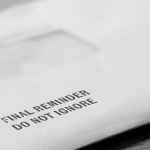The concept of the “zone of insolvency” refers to a critical period in a company’s financial distress where insolvency is looming, but not yet inevitable. During this phase, the directors’ duties shift, placing a greater focus on the interests of the company’s creditors, rather than its shareholders. This shift is essential because, as financial difficulties escalate, the potential loss to creditors becomes a more pressing concern.
A recent landmark ruling in the case of Re BHS Ltd (in liquidation) [2024] EWHC 1417 has brought the zone of insolvency into sharp focus. In this case, two former directors of the collapsed department store chain British Home Stores (BHS) were held personally liable to pay at least £18 million to the joint liquidators. The High Court’s decision has set new legal precedents on how the conduct of directors will be scrutinised during a company’s decline into insolvency, making it clear that the zone of insolvency is a critical time where directors must act with heightened diligence and care.
What is the Zone of Insolvency?
The zone of insolvency is a grey area where a company is not yet formally insolvent but is on the brink of financial collapse. It is during this period that directors must begin to shift their focus from maximising profits for shareholders to protecting the interests of creditors. Insolvency becomes a real possibility when it is evident that the company is unable to meet its debts as they fall due or when its liabilities outweigh its assets.
The case of Re BHS Ltd is a prime example of how this shift in responsibility is enforced. The directors of BHS were found to have continued trading and making decisions that were not in the best interests of the company’s creditors, even though they should have recognised the company was sliding into insolvency. The High Court ruled that the directors’ failure to act appropriately in this zone led to increased losses for creditors, resulting in their personal liability for some of the debts.
Key Duties of Directors in the Zone of Insolvency
While directors are generally required to promote the success of a company for the benefit of its shareholders, this duty changes once a company enters the zone of insolvency. At this point, the directors’ primary duty becomes protecting the interests of creditors. Directors must act in a way that minimises the potential losses to creditors and avoid actions that could worsen the company’s financial position.
- Duty to Minimise Losses
In the zone of insolvency, directors are required to take every possible step to minimise creditor losses. In Re BHS Ltd, the court scrutinised the actions of the directors during the company’s financial decline. It was revealed that the directors had been actively considering various options, such as restructuring and a company voluntary arrangement (CVA), right up until the eve of administration. However, the court found that these efforts were insufficient as the directors did not take every step to protect creditors from increasing losses. The directors’ continued trading only exacerbated the financial deficit. - Duty of Independent Judgment
Another crucial element highlighted in the BHS ruling was the directors’ reliance on professional advice. While the directors of BHS had sought advice from leading law firms, the court held that they could not simply rely on their advisers to make decisions about the company’s solvency. Directors must exercise their own independent judgment and not defer to external professionals when it comes to determining whether there is a reasonable prospect of avoiding insolvency. The court stressed that taking legal advice, while important, does not absolve directors of their personal responsibility. - Duty to Avoid Misfeasance
In addition to wrongful trading claims, the High Court in Re BHS Ltd introduced the concept of “misfeasant trading.” This refers to the failure of directors to properly discharge their fiduciary duties, such as the duty to act in the best interests of creditors once the company enters the zone of insolvency. The ruling made it clear that directors can be held personally liable for decisions made during this period that harm creditors, even if the company has not yet officially entered insolvency.
In the case of BHS, the court found that certain transactions approved by the directors were not in the best interests of creditors. These transactions, which benefitted shareholders or related parties, were deemed breaches of fiduciary duty. The ruling opens up new opportunities for liquidators to recover losses from directors who fail to act with reasonable care and diligence during the zone of insolvency.
Wrongful Trading vs. Misfeasant Trading
The Re BHS Ltd ruling draws a clear distinction between wrongful trading and misfeasant trading. Wrongful trading occurs when directors continue to trade when they know, or should know, that there is no reasonable prospect of avoiding insolvency. The directors are then held liable for any increase in the company’s debts from the point they should have realised insolvency was inevitable.
In contrast, misfeasant trading arises when directors breach their fiduciary duties by failing to act in the best interests of creditors, even before wrongful trading becomes an issue. The ruling in Re BHS Ltd is significant because it highlights that misfeasance claims can be made for actions taken before the company’s financial situation reaches a point of no return.
For example, the court held that certain transactions approved by the BHS directors in June 2015 were already in breach of their duty to creditors, even though insolvency was not yet inevitable. The decision clarifies that directors must consider creditor interests as soon as insolvency becomes probable, not only when it is unavoidable.
The Importance of Documentation
Another key lesson from Re BHS Ltd is the importance of maintaining clear and detailed records of board decisions, especially when a company is in financial distress. The court gave little weight to the board minutes prepared by lawyers for the BHS directors, as there was no independent evidence showing that the directors had considered the best interests of creditors at the time.
Directors should ensure that their decision-making process is thoroughly documented, including the rationale behind each action and how it serves the interests of creditors. This documentation can provide valuable evidence if the directors’ decisions are later challenged in court.
Seeking Professional Advice: Use with Caution
While seeking professional advice is essential, directors must remember that it is not a substitute for independent judgment. In Re BHS Ltd, the directors relied heavily on legal advice that did not specifically warn them of inevitable insolvency. However, the court made it clear that directors cannot abdicate responsibility by deferring to advisers. They must weigh the advice carefully and ensure that all decisions are made with the creditors’ interests at the forefront.
Implications for Directors Going Forward
The Re BHS Ltd ruling has wide-reaching implications for directors of companies operating in or near the zone of insolvency. The key takeaways include:
- Recognising the Zone of Insolvency: Directors need to be aware of when their company is entering financial distress and adjust their duties accordingly.
- Independent Judgment is Key: While professional advice is important, directors must exercise their own judgment and ensure decisions are made in the best interests of creditors.
- Clear Documentation is Essential: Directors must keep detailed records that demonstrate they considered creditors’ interests and took reasonable steps to minimise losses.
- Avoid Transactions that Benefit Shareholders at the Expense of Creditors: Directors must be cautious about approving transactions that favour shareholders or related parties when the company is in financial distress.
Conclusion
The zone of insolvency is a critical period for any business, and directors must act with increased diligence to avoid personal liability. The Re BHS Ltd ruling has made it clear that directors cannot rely solely on external advisers or hope that financial distress will resolve itself. Instead, they must take proactive steps to protect creditors’ interests and ensure that all actions are well-reasoned and documented. Directors who fail to meet these standards may find themselves facing significant personal liability, as seen in the case of BHS.


